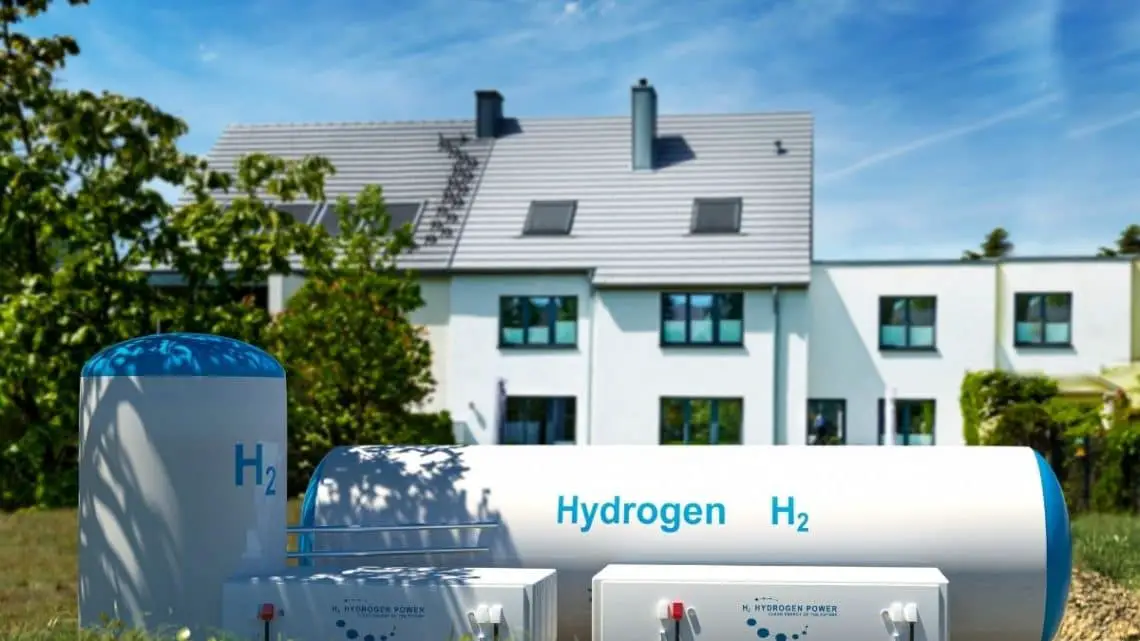
What does it take to create a hydrogen home
February 19, 2022What equipment and resources are required, and would utility costs rise?
There are many projects around the world working on making a hydrogen home possible for consumers or entire communities.
The United Kingdom is already trialing efforts to use hydrogen for home heating and electricity.
The main design for a hydrogen home has to do with using household boilers fueled in the same way as natural gas is used. While some projects are working on mixing natural gas and H2 for household heating, others are focused on using H2 fuel exclusively.
H2 has become a fuel of focus because it is possible to produce it without carbon emissions, it is used without greenhouse gas emissions, and it is believed that houses can use it for heating with existing equipment, or for electricity with additional equipment – fuel cells. Using it also means that energy companies won’t need to rely on costly imported gas, which has been rapidly increasing in price.

Green hydrogen powered home technology is the ideal, but it comes with barriers.
Green hydrogen home technology is considered to be the ideal. Green is the form of H2 that is produced using renewable energy, meaning that it is made without greenhouse gas emissions. That said, to be able to produce this form of H2, it means that renewable electricity – such as solar and wind – needs to be available. Moreover, transportation, storage and distribution will also be necessary.
The way a house would use H2 for heating depends on the heating system installed. There are many different kinds of boilers, for instance, as well as heat pumps. Currently, traditional gas boilers make it possible to combine hydrogen fuel and natural gas to heat water and pump it around the house to provide central heating. A fully H2 boiler would work in a similar way. That said, as of the writing of this article, they are not yet commercially available. Leaders in the industry are developing and testing prototypes.
Heat pumps, on the other hand, are powered by electricity to pull heat from exterior sources such as ground, air or water sources. The heat is then transferred to the water and is sent throughout the building using either underfloor heating or radiators.
Check out this video of newly built UK hydrogen homes in 2021 are giving the public a peak by providing tours and education on hydrogen boiler safety, cooking, heating and even having a hydrogen fire. Embracing H2 use in the residential sector for green home solutions is key to meeting the 2050 earth renewable energy target.
What will it take to switch to a hydrogen home?
The main challenges to switching to a hydrogen home heating and more are the availability of the necessary equipment, primarily the fuel cells and the H2 itself, and the cost associated with the switch. Moreover, at the moment, green H2 is more expensive than forms produced using methods that produce greenhouse gasses or that use carbon capture.
Though analysts increasingly believe that the cost of green H2 will drop substantially by the end of the decade, for the moment, powering a house using H2, particularly renewably produced, will be notably more expensive than using other sources.
![]()
 H2 Spotlight Question – Is hydrogen energy the future? Find out where it’s headed! Giants like Toyota think that hydrogen energy is the future, but Elon Musk regularly makes Tesla news headlines suggesting that H2 isn’t what the hype suggests. Are fuel cells the answer to our clean energy needs? HFN has been keeping up with the latest developments. For further details, visit the Learning Center and download a copy of the free ebook. Sign up for the newsletter to the right, in our sidebar, so all the hydrogen fuel news headlines arrive in your inbox.
H2 Spotlight Question – Is hydrogen energy the future? Find out where it’s headed! Giants like Toyota think that hydrogen energy is the future, but Elon Musk regularly makes Tesla news headlines suggesting that H2 isn’t what the hype suggests. Are fuel cells the answer to our clean energy needs? HFN has been keeping up with the latest developments. For further details, visit the Learning Center and download a copy of the free ebook. Sign up for the newsletter to the right, in our sidebar, so all the hydrogen fuel news headlines arrive in your inbox.



 With over 15 years of reporting hydrogen news, we are your premier source for the latest updates and insights in hydrogen and renewable energy.
With over 15 years of reporting hydrogen news, we are your premier source for the latest updates and insights in hydrogen and renewable energy.
Green Hydrogen technology has going to have the same birthing pains as LED lighting and flat-screen TV…..
There will be much trail and error, but ultimately the big manufacturers will get it right …. Lets hope governments get their act together and prevent any long-term patent-hogging by those who come up with the best ideas. Patent-blocking would blunt the whole concept of this tech being a silver bullet for the planet, and would result in end-user resentment…..